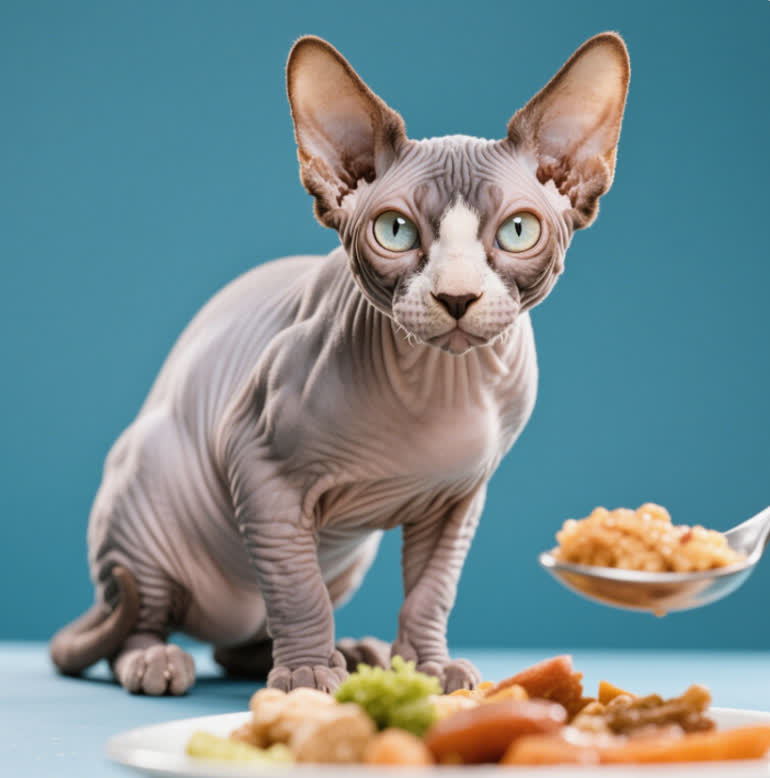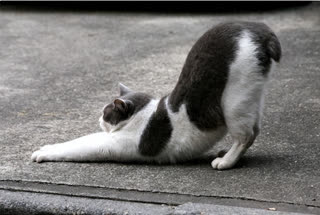The Devon Rex, with its elf-like ears, wavy coat, and playful personality, is a beloved breed among cat enthusiasts. However, their unique genetic makeup and sensitive skin make them prone to food allergies, a common concern for owners. Understanding Devon Rex cat food allergies symptoms and solutions is crucial to ensuring your feline companion thrives. This guide explores the signs of food intolerance, common allergens, diagnostic steps, and actionable strategies to manage allergies effectively—all backed by veterinary insights and nutritional science.
1. Recognizing Symptoms of Food Allergies in Devon Rex Cats
Food allergies in Devon Rex cats often manifest through skin and gastrointestinal issues. Key symptoms include:
Itchy Skin & Dermatitis: Excessive scratching, redness, or scabs around the face, neck, and ears.
Digestive Distress: Vomiting, diarrhea, or frequent bowel movements.
Ear Infections: Recurrent inflammation due to weakened immune responses.
Hair Loss: Patchy fur from over-grooming irritated areas.
Unlike seasonal allergies, food-related reactions persist year-round and worsen with repeated exposure to allergens. Early detection is critical to preventing chronic discomfort.
2. Common Food Allergens for Devon Rex Cats
While any ingredient can trigger an allergy, certain proteins and additives are frequent culprits:
Animal Proteins: Beef, chicken, fish, and dairy products (e.g., lactose intolerance).
Grains & Fillers: Wheat, corn, and soy, often used in low-quality commercial foods.
Artificial Additives: Preservatives like BHA/BHT or artificial colors.
Devon Rex cats may also develop sensitivities to novel proteins over time, emphasizing the need for rotational diets or hypoallergenic formulas.
3. Diagnosing Food Allergies: Steps for Clarity
Confirming a food allergy requires systematic elimination:
Elimination Diet: Transition to a limited-ingredient diet (e.g., duck or rabbit protein) for 8–12 weeks, avoiding suspected allergens.
Reintroduction Phase: Gradually reintroduce ingredients one at a time to identify triggers.
Veterinary Testing: Blood tests or skin biopsies to rule out environmental allergens or parasites.
Documenting your cat’s reactions in a journal can help veterinarians pinpoint specific intolerances.
4. Solutions for Managing Devon Rex Cat Food Allergies
A. Hypoallergenic Diets
Switch to hydrolyzed protein or novel protein diets (e.g., venison, kangaroo), which break down allergens into smaller, less reactive molecules. Brands like Royal Canin Hypoallergenic or Hill’s Prescription Diet are vet-recommended options.
B. Natural & Homemade Options
Prepare balanced homemade meals with vet-approved recipes, focusing on single-protein sources and avoiding grains. Supplement with omega-3 fatty acids (e.g., fish oil) to reduce inflammation.
C. Avoid Cross-Contamination
Use separate bowls and utensils for allergen-free meals, and check treats for hidden ingredients like chicken by-products.
D. Medication & Supplements
Antihistamines or corticosteroids may relieve acute symptoms, while probiotics support gut health and immune function.
5. Preventing Future Allergic Reactions
Regular Vet Checkups: Monitor your cat’s health and adjust diets as needed.
Read Labels Carefully: Avoid foods with vague terms like “meat by-products” or artificial additives.
Gradual Transitions: Introduce new foods over 7–10 days to minimize digestive upset.
Addressing Devon Rex cat food allergies symptoms and solutions requires patience, observation, and collaboration with your veterinarian. By identifying triggers, selecting appropriate diets, and maintaining a hypoallergenic environment, you can ensure your Devon Rex enjoys a vibrant, itch-free life. Remember: Every cat is unique—tailor your approach to their specific needs and celebrate small milestones in their health journey.










